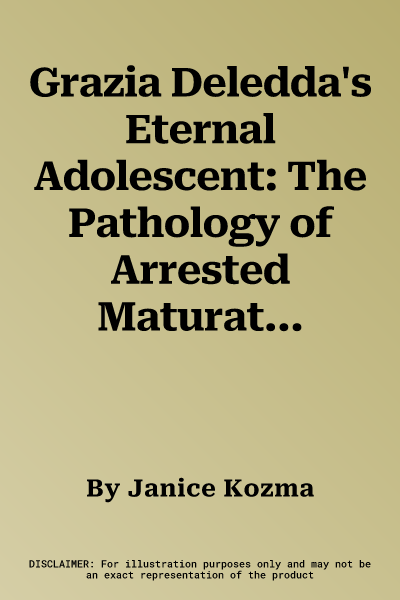Janice Kozma
(Author)Grazia Deledda's Eternal Adolescent: The Pathology of Arrested MaturationHardcover, 1 February 2002

Qty
1
Turbo
Ships in 2 - 3 days
In Stock
Free Delivery
Cash on Delivery
15 Days
Free Returns
Secure Checkout

Part of Series
The Fairleigh Dickinson University Press Italian Studies
Part of Series
Fairleigh Dickinson University Press Series in Italian Studies
Part of Series
Fairleigh Dickinson University Press Series in Italian Studi
Print Length
214 pages
Language
English
Publisher
Fairleigh Dickinson University Press
Date Published
1 Feb 2002
ISBN-10
0838639356
ISBN-13
9780838639351
Description
Product Details
Author:
Book Format:
Hardcover
Date Published:
1 February 2002
Dimensions:
22.86 x
15.27 x
1.14 cm
Genre:
Italy
ISBN-10:
0838639356
ISBN-13:
9780838639351
Language:
English
Pages:
214
Publisher:
Series:
Weight:
508.02 gm